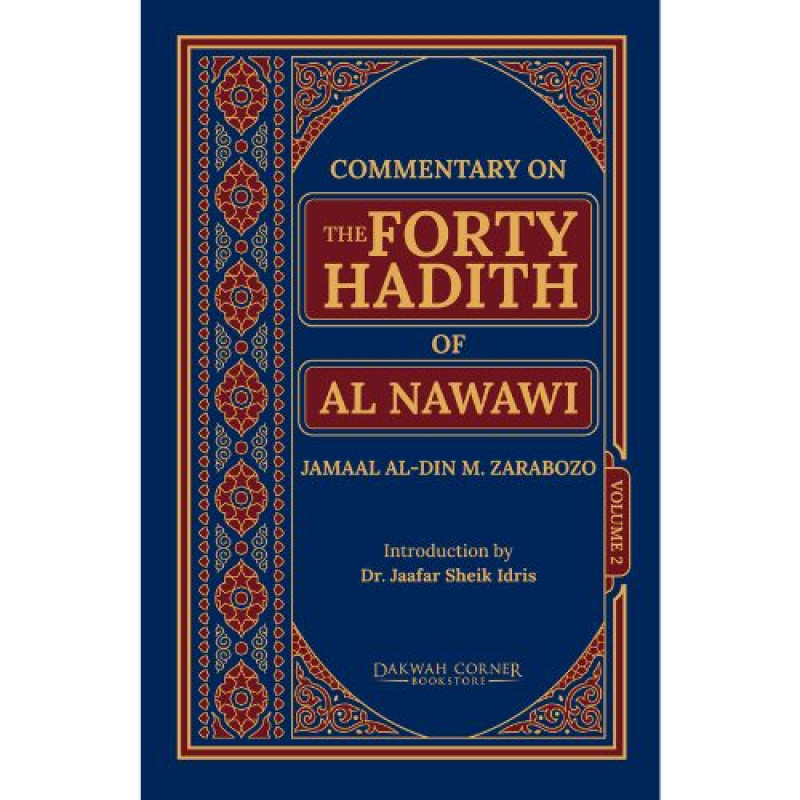This is an excellent commentary on a remarkable book. Brother Jamaal Zarabozo deserves our congratulations for producing such a scholarly work. We should also thank him for allowing English-speaking students of Islam to explore the in-depth knowledge of hadith—a depth of understanding that has typically been reserved for speakers of Islamic languages, especially Arabic.
He is commendable for choosing al-Nawawi’s Forty Hadith, as these sayings are among the most significant teachings of the Prophet (peace be upon him). Gaining a deeper understanding of them is sure to offer readers, even novices, a comprehensive view of Islam's fundamental beliefs and principles. Unsurprisingly, this book has remained one of the most popular Islamic texts in the Muslim world for hundreds of years.
Brother Zarabozo has certainly drawn inspiration from many commentaries on this work; however, his is not merely a translation or a summary of those commentaries. Instead, it is an original commentary that the English-speaking reader will find more useful and engaging than simple translations of traditional commentaries.
This book's strength lies in the author's unique method of studying prophetic sayings. He thoroughly examines the main aspects of hadith, diving deep into its linguistic, logical, jurisprudential, and legal dimensions. Utilizing his extensive knowledge of relevant sources, the author presents nearly all the insights offered by classical and contemporary scholars regarding hadith and the lessons they have derived from it.
However, he does more than just quote and translate; he also adds commentary, discusses interpretations, and evaluates various viewpoints. This approach allows readers to gain a deeper understanding of these renowned scholars' thought processes and become familiar with their reasoning and arguments.


